#ofts ep 1
Explore tagged Tumblr posts
Text
PSA (in case anyone cares) user dribs-and-drabbles is now watching Only Friends!
I repeat, user dribs-and-drabbles is now watching Only Friends.
Ep 1 down and my initial observations are as thus:
Mew must be protected at all costs (and his glasses)
Neo and Mark are blowing the others away (NOT like that, although I wouldn't be surprised if it happens eventually)
Mew has the milkshake that's bringing all the boys to the yard (both Ray and Top obviously want him but does Boston want him too? Also, is it just a 'forbidden fruit' thing, where they probably only want him because he's inexperienced and waiting for the right one/time...?)
Pran's Singapore bedsheets are going to get desecrated at some point, right?
And will a different GMM actor cameo in every ep for Neo to sleep with?
I think that's all I've got for now. I won't be looking into the tag until I'm all caught up but you're welcome to direct me to any ep 1 posts or comment on this...but no spoilers for future eps please!
#only friends#ofts#only friends the series#ofts ep 1#if you saw me answer an anon a while back about me NOT watching the series#no you didn't#(yes you did but I discovered there was a way for me to watch it after all)#anyway...#I'm blushing my way through this#it's hard to detach myself from knowing these actors#and that they're doing things so intimately with each other#I'm just 🙈🙈🙈#but it's GOOD so far!
31 notes
·
View notes
Text

🫵 SLUT

🫵 WHORE
787 notes
·
View notes
Text
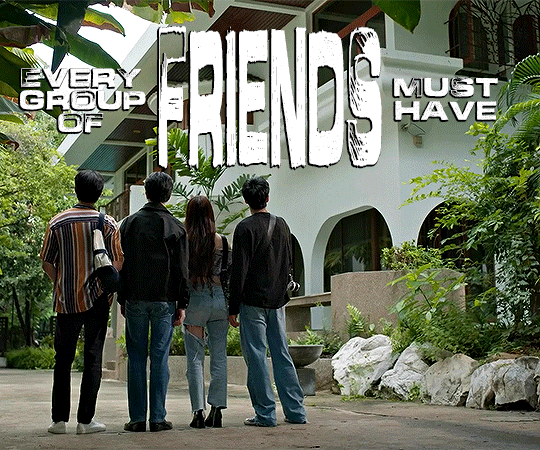
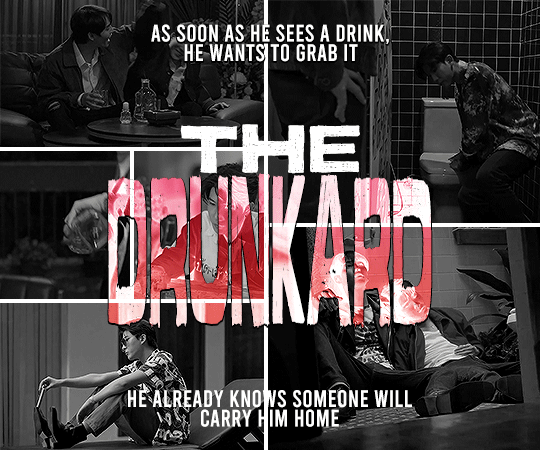
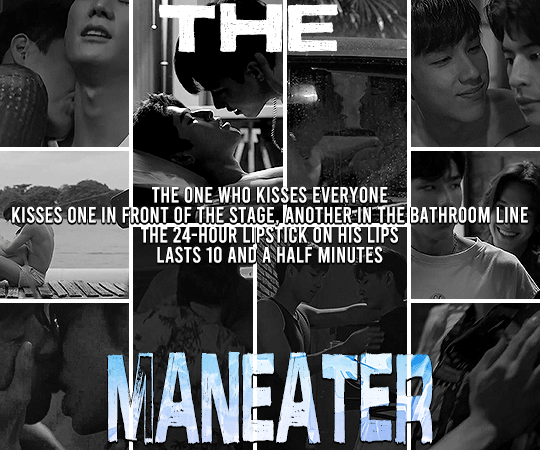
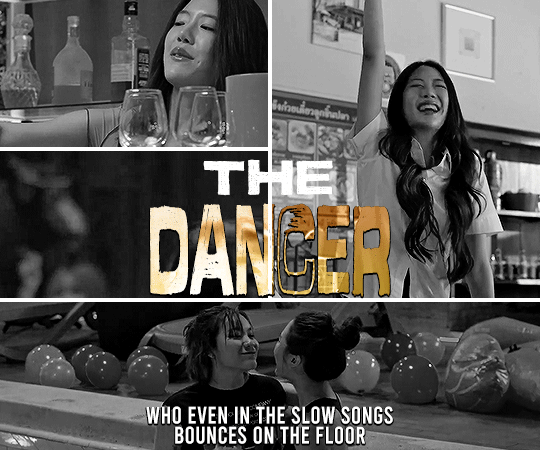
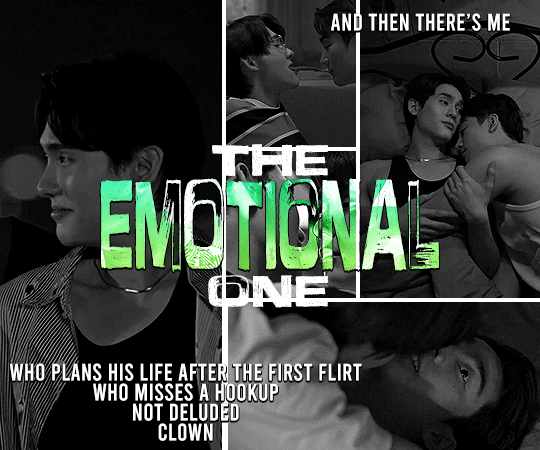
❝What's your role in a bar?❞
HAPPY ONE-YEAR ANNIVERSARY, ONLY FRIENDS!
#ofts#only friends#sandray#topmew#bostonnick#first kanaphan#khaotung thanawat#firstkhao#force jiratchapong#book kasidet#forcebook#neo trai#mark pakin#neomark#lookjun bhasidi#th: only friends#bibi gifs#this edit was on my mind ever since a year ago when this hell show was on air#and this song just goes so exactly well with the descriptions of the problematic f4 in ep 1#this wasn't supposed to look like this btw i changed it like 3 days ago#but it's better than nothing at least#i miss you only friends and all the stress you gave me#to whoever wants to listen to the song it's linked in the description but it's called palhaça by naiara azevedo and ana castela
68 notes
·
View notes
Note
Sand betraying Nick hurt me more than any other betrayal 😭😭
Oh, Anon... You shouldn't have sent this, now it's your fault if I can't stop. Deal with me, please 😂.
A lot of people are talking about how Sand possibly manipulated Ray but few people are talking about this. I personally believe that Sand knew which buttons to press to elicit a response in Ray but it's debatable whether Sand expected to see Ray explode or not. However, what's not debatable is how Sand betrayed Nick.
Nick and Sand have known each other for a long time, in EP2 it's suggested that they used to spend time together. They even trusted each other enough to get to live together.
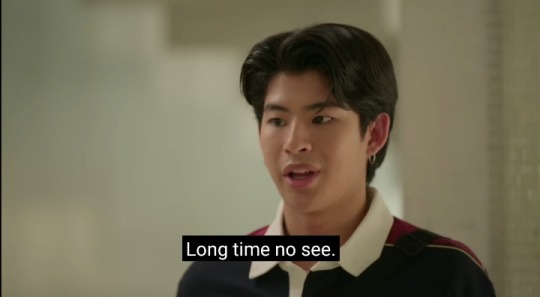
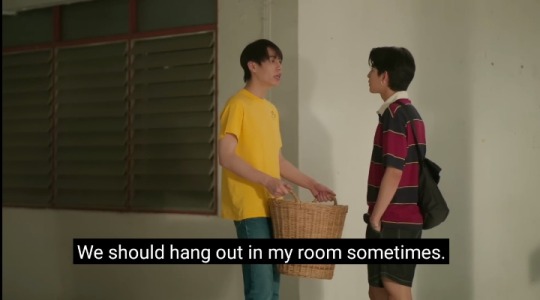
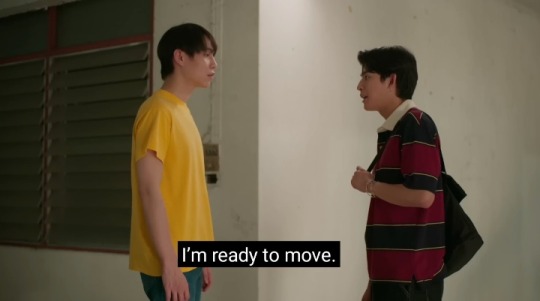
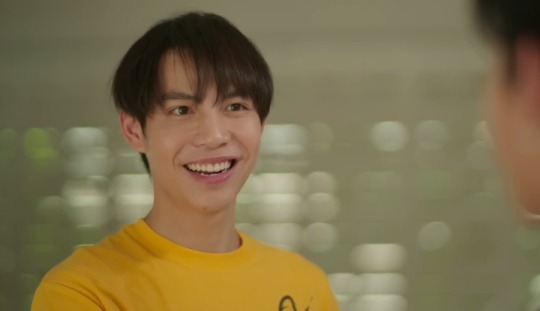
In the present, Nick trusted Sand enough to confess that he recorded two people having sex without their consent, only asking him not to disclose it. At the same time, Nick also confessed that he was in love with Boston and Sand was able to see the slow progress in BostonNick's relationship (even though he knows Boston never compromises with anyone) and how much it affected Nick.
These two were the only ones who could really be considered "friends" (without any other feelings involved) and yet Sand betrayed Nick's trust and showed that he doesn't care about what happens to Nick. Sand even revealed to Ray who had recorded the audio, something completely unnecessary if you ask me.
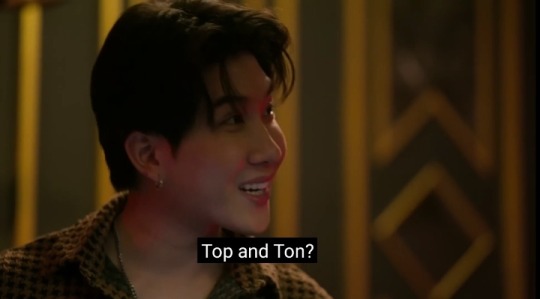
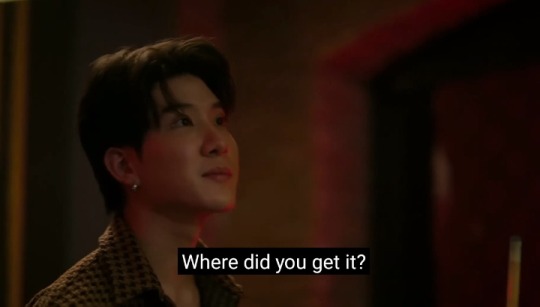
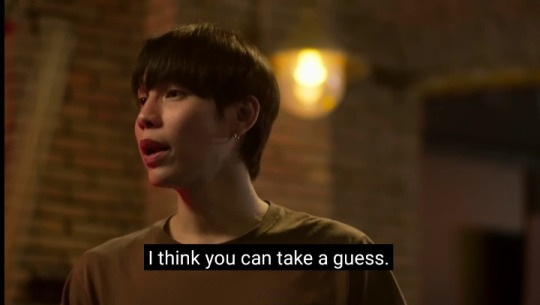
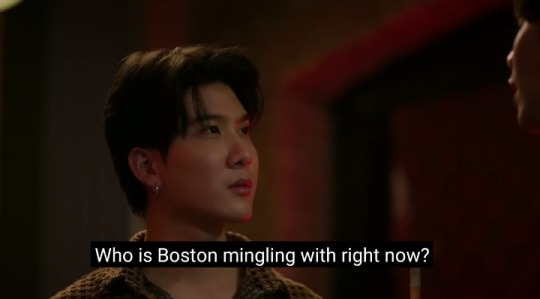
I really don't know if Sand didn't think about the consequences of his actions because his hatred for Top blinded him or if he did think about the consequences but decided to ignore them. I think it's important to think about the level of obsession that Sand has with Top, because he didn't care about the way his actions might affect his relationships or the relationships of his relationships. This is certainly something to ponder. Either way, Sand not only hurt Nick (because Nick knows what Sand did), but he put Ton and Nick's relationship at risk (which is also going to hurt Nick) and Nick could have to face legal consequences.
Now, many may say “deserved" to Nick because Nick also went through Ton's phone, Nick was the one who made the decision to record TopBoston and, of course, Nick is also questionable and manipulative. However, both Nick and Sand have acted problematically in certain situations and it's important to evaluate their actions individually rather than comparing them directly. Each action must be considered in its own context and with respect to its consequences. Same with those people who complain about putting Sand and Ton on the same level saying that Sand is not as bad as Ton. There is no such thing as who acted better or worse, both acted badly and to say that a character isn't problematic just because he isn't as problematic as certain character is to minimize and justify based on comparison. We're allowed to criticize the actions of each character without having to compare them with other characters' actions. Each character deserves an independent evaluation based on their own development in the series.
With all that said, I love the drama Sand is bringing to the series! I hope we can continue to enjoy his questionable attitudes, even if they make us suffer.
#only friends the series#only friends series#only friends series ep 6#only friends#only friends meta#ofts#ofts meta#sand#nick#first#mark#sandnick#firstmark#thai bl#gmmtv#only friends series ep 1
54 notes
·
View notes
Text






ONLY FRIENDS (2023) 1x1
#THEY ARE NOT EVEN ACTIVELY KISSING IN THIS BIT YET IT LIVES RENT FREE IN MY HEAD#THE OPEN MOUTHED YEARNING JUST FUCKING ANIHILATES ME OVER AND OVER AGAIN#only friends the series#ofts#bostonnick#neomark#that's the sexiest bit in the entire ep imo#thank you for your service 🫡#favorites#ofts bn ap#episode 1#blmpff
56 notes
·
View notes
Text
Sand being the SASSIEST CHARACTER of Only Friends and I MEAN IT
Please, I come with proof. MAJOR PROOF. Please GET ME.
Episode 1



and this fucking expression. LIKE HE IS SO DONE WITH PEOPLE PICKING UP MICS TO CONFESS THEIR LOVE

Episode 2



and this
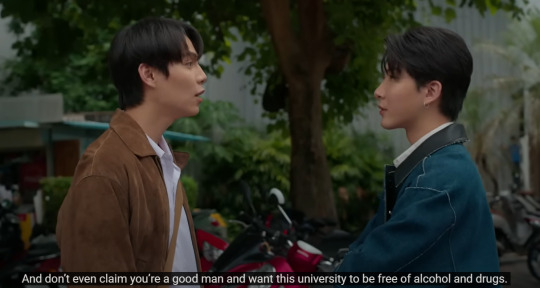

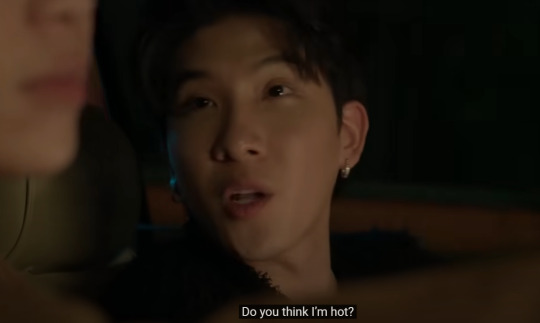


BRO THIS IS SENDING ME LOL TF - HOW DARE YOU (affectionate)
Episode 3



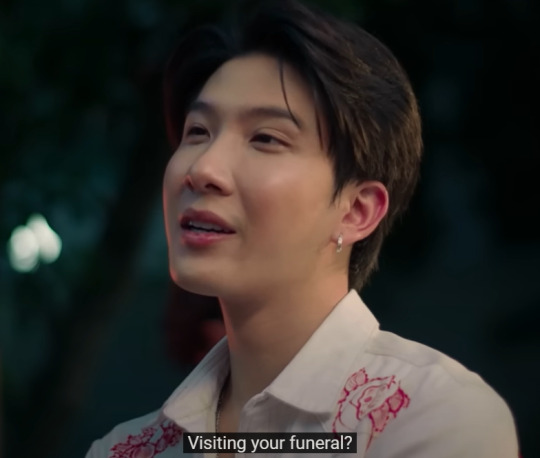

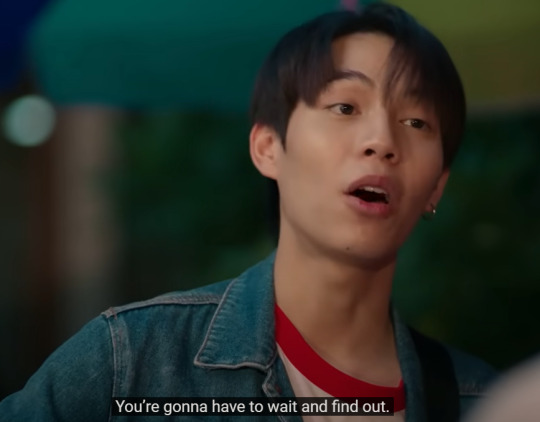
AND THIS EPIC MOMENT

Episode 4

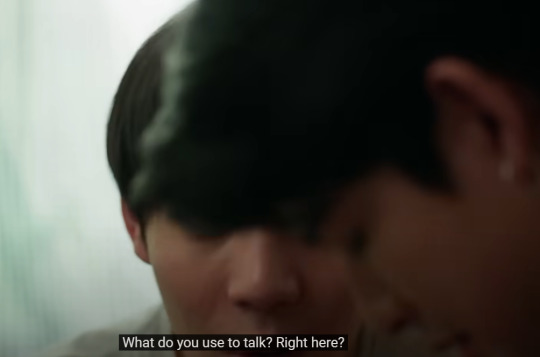


bonus:
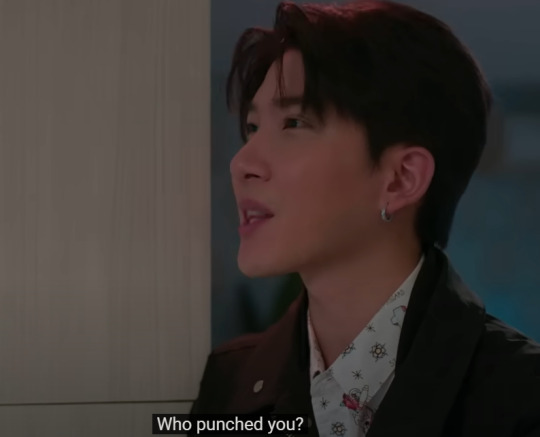
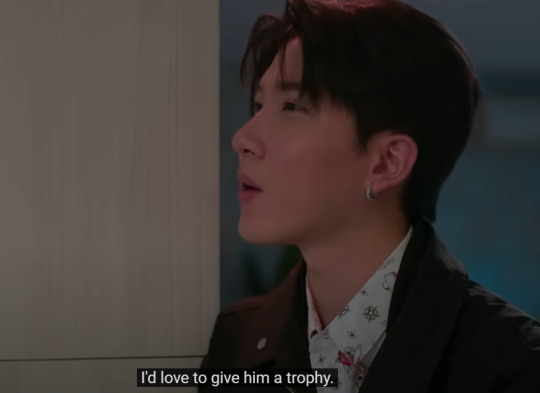
since this post is reaching the 30 image mark, i'll add episode 5 to 7 attaching to it via reblog.
PLEASE FEEL FREE TO ADD MORE INSTANCES. I WILL LOVE.
#sand is favoruite character#sassiest of all#we will take a dig at everyone but especially top (derogatory) and ray(affectionate)#ofts#only friends the series#only friends ep 1#only friends ep2#only friends ep3#only friends ep4#only friends sand#bonus ray
37 notes
·
View notes
Text
force downing that glass of water was… something
#force jiratchapong#ofts#only friends#only friends the series#gonna have to watch ep 1 over and over all week#beck liveblogs
16 notes
·
View notes
Text

Ok but why are "Sand" and "Ray" wearing the exact *same* boots?! You can't fucking tell me poor as hell Sand can afford Ray's boots. What's going on here hmm 🤔
#extremely sus#but I encourage#those are definitely First's and Khao's own boots#you can't tell me otherwise#and if you do I'll say you're wrong#only friends the series#ofts#ep 1 of Only Friends
11 notes
·
View notes
Text

@thehollowprince YES THIS IS SUCH A GOOD CATCH!!
Begin Again because it's a new year, a fresh start. Begin Again because they've removed the "problems" from their friend group. Begin Again because they've graduated and they're starting a new project. Begin Again because Boston and Nick are starting a new lives away from all of this. Begin Again because all their mess is cyclical and they're going to keep doing this again and again until they all fall away.
i genuinely loved that final scene so much though because these characters can judge boston all they want and blame him for all their relationship issues but now boston is a world away living a whole different life and they're all in solid stable relationships but the appearance one singular mix sahaphap has all of them drooling and offering to keep him company. like how do you blame boston for any of the mess this would cause.
it's also the biggest fuck you to the contractual obligation of giving the fixed pairs their happy ending because you can spend the whole episode showing how they're all happy and sorted and over their issues while nick and boston need to figure themselves out but you can also put mix sahaphap into a scene and say yeah it's a month after their very fun new year where everyone got along super well and their relationships were all great and solid and you can have ray dressed like sand and mew dressed like top but they will still all clamber over each other to get to mix and it just ENDS on that and there's enough plausible deniability but also WE KNOW. we know.
#and the more i think about it the more sense the sandray plum wine bs makes sense through this#ep 1 had all 4 of them starting up a business that forced them into proximity with each other even when things started going bad#a huge catalyst for a lot of the mess actually#and now sand and ray are getting into a business together which will force them into proximity with each other even if things get messy#(both situations also had ray telling people he wants to pull his weight)#i like it#only friends#ofts
261 notes
·
View notes
Text
sandray being paralleled by their entire surroundings in ofts ep 8, exhibit b: yo and plug
just for funsies let's look at sand's dead eyed gaze while plug is saying heartbrokenly: you know she flirted with me for a month? I refused. time after time. but now I want to get serious, she says she doesn't want it anymore

and here's a nice shot of each of them reacting to if you really think nobody in this world wants to get serious with you, then you'd better stay alone:


oh yeah! ouch!
and here is sand telling plug to take it easy and reaching out to stop him walking away

aka: I've decided that's not how we treat the people who are hurting us with their abandonment issues
the moment that yo and plug have interrupted here is, appropriately enough, sand turning to leave, then telling ray let me go already and pulling his hand away when ray tries to restrain him. but he hasn't actually made any further move to go, and I'm not convinced that he's about to. when yo and plug arrive, sand and ray are still standing staring forlornly at each other, to a slow acoustic riff that I'm so sure is intentionally channeling brokeback mountain.

when plug has given up and gone sand pulls p'yo into his arms and after a beat ray comes over and puts one hand tentatively on her shoulder. they are both comforting a friend here, and also they are both seeing themselves in all of it: ray as yo, who is sabotaging her own happiness because of the ways she's been hurt before, and sand as plug, who values his own ability to give love and is tired of feeling strung along by someone he has real feelings for.
it reads as a little uplifting to me that ray is reaching out, however uncertainly, to his mirror here. and sand, for the first time since this episode began, looks suddenly back on solid ground: he's familiar with the caretaker role, and at ease in it.

10:1 plug and yo are getting back together in this story, because their problems are the kind of no-one-has-done-real-wrong ones that in fiction at least can be set aside. and sandray? they're about to face at least a few more of the problematic-even-in-fiction problems, but honestly despite what's coming up for them this episode, I'd say the parallel holds here
...?
#mal sehen#first macroexpressions khao microexpressions really being played to full effect in this show#only friends the series#ofts#ofts meta#sandray#raysand
116 notes
·
View notes
Text

Vitriolic - Black Steel Vengeance (2024)
Black Speed/Thrash Metal from Tampere, Finland
VITRIOLIC stammen aus Tampere und erheben die eiserne Faust der oft übersehenen Black-Thrash-Szene ihres Heimatlandes. Von den Paradebeispielen Urn und Flame bis hin zur nächsten Generation von Evil Angel, Sadokist und den Labelkollegen RAPID kämpft das Power-Trio von VITRIOLIC seit fünf Jahren im Metal-Kampf. Zunächst veröffentlichte die Band ihre ersten EPs und ein Live-Album im Eigenvertrieb und gab dann 2021 mit „Renegade Ascension“ über Headsplit ihr Debütalbum in voller Länge heraus. Und während einige Songs ihres zweiten Albums in den letzten Jahren in Demoform angekündigt wurden, erscheint nun endlich „Black Steel Vengeance“.
1. Crown of Fire 03:50 2. The Eternal Return 04:25 3. Death Unconquered 03:38 4. Martial Spirit 03:41 5. Envenom Katharsis 05:03 6. Hellspawn - Heir to Darkness 04:33 7. The Hunt 02:12 8. Scorn is the Son of Defeat 04:49 9. Trench Raider 03:52 10. Black Steel Vengeance 05:01
Release date: January 17th, 2025 via @dyingvictimsproductions
#vitriolic#finnishspeedmetal#blackmetal#speedmetal#thrashmetal#blackspeed#blackthrash#speedthrash#blackspeedmetal#blackspeedmetalband#blackenedspeedmetal#oldschoolspeed#oldschoolspeedmetal#speedmetalmusic#speedmetalproject#highspeedmetal#satanicspeedmetal#extremespeedmetal#satanicmetal#blackspeedthrash#blackspeedmetalcd#speedfanatics#blacksteelvengeance#speedmetalpromo#album#newalbum#2025release#albumcover#bandcamp#spotify
8 notes
·
View notes
Text
Mewsexual - would like an emotional connection before having sex
Tonsexual - needs no emotional connection for sex...and would like lots of it please
Nicksexual - feels an immediate sexual attraction then develops an emotional connection after several rounds
Sandsexual - is open to anyone and everything if there's an interest on both sides
Raysexual - desires the unattainable and antagonistic, sex may lead to friendship
Topsexual - is hot, knows it, and enjoys sex because of it, likes a challenge
#only friends#ofts#only friends the series#ofts crack poll#sorry if this has been done already#i haven't seen any only friends posts yet#since I only started watching the series tonight#this poll is based on my impression of the characters in eps 1 and 2#happy to be corrected if I'm wrong#I'm making this instead of sleeping which I very much should be doing#the brain rot has set in already I see 🧐
28 notes
·
View notes
Text

this is the funniest line on any show ever
378 notes
·
View notes
Text


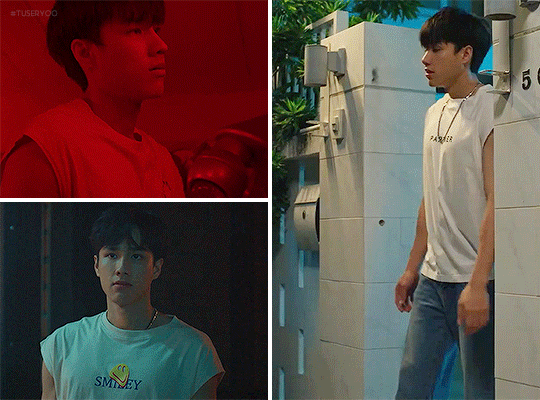



Boston's a Bitch and he owns that Shit! Pt. 2
Some of my favorite Boston graphic shirts are: 'Make Love, No War' as he walks angrily towards Nick after a fight with Top, happy sun shirt as he's clearly missing Nick after sleeping with Cheum's asshole brother, melted Smiley shirt as he watches Nick dance with Dan when moments before he was probably getting his d sucked by a random dude, and Faith Hope Love on his skating date with Nick that is probably the only one that fits his mood somehow.
NEO TRAI as BOSTON ( ONLY FRIENDS EP. 7-12 )
#only friends the series#ofts#only friends#neo trai#thai drama#thai bl#gmmtv series#gmmtv bl#th: only friends#ofts boston#:: fashionbaby#:: onlyfriendsoutfits#bibi gifs#boston repeated outfits so many times#that partner shirt was used on his flashback with top and when atom goes to see him at his house begging for a chance#i'm pretty sure the pretty blue sleeveless shirt from ep 11 is the same from ep 1#obviously stripped black and white shirt from 12 is the same as from 10#i'm sure eagle shirt from ep 3 is the same as the reconciliation with nick one in ep 10#he doesn't have enough outfit changes (or scenes) in the second half is where i'm getting at
37 notes
·
View notes
Note
thank you so much for your analysis on Mew - it's so interesting! I feel like there's so much hate towards him right now (and I don't really get why? The SandRay situation obviously isn't his fault?) but he's such an interesting character to me, flaws and all.
You're also the only person I've seen talk about his potential demisexuality, and I was wondering if you could expand on that? There are a lot of comments out there saying that Mew has a really unhealthy attitude to sex because he doesn't seem to want to have it - and spends the first few episodes actively avoiding it. I'm not disagreeing with that perspective entirely, but what's wrong with just not wanting to have sex? I'm asexual so I may be missing something in this fandom discourse - is it Mew's desire for control that's unhealthy, or is the argument that a healthy relationship must include sex? I was so pleased to see your comment about demisexuality, because honestly that's what his whole character screams to me. (I could also be reading into it way too much, we don't get a lot of ace/demi rep!)
Thanks again for the great meta, I love your posts!
You're welcome Anon! I'm glad you found the analysis on Mew interesting. I agree, there's so much hate towards Mew right now and I think it is due to several reasons: a) Mew negatively affects SandRay's development. b) Mew is a difficult character to read and that can make certain people uncomfortable. c) People don't like the actor and resent the fact that he's a central character in the series.
The topic you brought up is extremely interesting and I don't see enough people talking about it, so... Sure, let's talk about Mew's possible sexual orientation! ���
Since EP1 it has been theorized about Mew being demisexual due to the following moment:

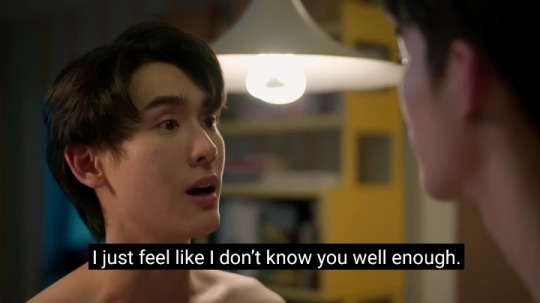
Demisexuality is a sexual orientation where individuals typically experience sexual attraction only after forming a strong emotional connection or bond with someone. Unlike many other sexual orientations, demisexual individuals may not feel immediate or purely physical attraction to others and often require a deeper emotional connection to develop sexual desire.
Demisexuality is a sexual orientation that is on the spectrum of asexuality. What does it mean that asexuality is a spectrum?
“asexuality as a spectrum” means that asexuality it's not a monolithic sexual orientation (not a single, uniform category that encompasses all people who identify as asexual) and that it encompasses a variety of experiences and degrees of sexual attraction. Asexual people may experience their orientation differently, and that's why we talk about a spectrum. Many asexual people may experience no sexual attraction and others may experience sexual attraction in very specific circumstances. However, this is only one aspect of many that makes asexuality a spectrum.
At the same time, asexuality is a sexual orientation within the asexual spectrum.
Mind you, lack of sexual attraction should not be confused with lack of romantic attraction. A person can be hetero-romantic, bi-romantic, homo-romantic, and so on.
Why do I explain all this? First, in the case that someone who's not very informed is reading. Second, because I think Mew is asexual and not demisexual. It's debatable, what's not debatable is that Mew's sexual orientation is part of the asexual spectrum. However, I think the theory that Mew is demisexual is no longer in line with what Mew has shown in recent episodes. Despite having accepted his feelings for Top and forming an emotional bond, Mew has no sexual attraction for Top. This is also consistent with the fact that Mew is still discovering his sexuality and, at first, he might have thought that after getting to know Top he would experience sexual attraction. In fact, many asexual people used to think at first they were demisexual (because at first you don't want to rule out the idea of possible future sexual attraction).
So, let's get things straight:
Mew isn't sexually attracted to Top. Despite that, like many asexual people, he may consider someone attractive. In this case, he considers Top attractive and, at the same time, he actively seeks a romantic relationship with him (once again, romantic attraction isn't related to sexual attraction). He isn't particularly interested in having or perusing sex. He never manifests enthusiasm, desire or strong emotional reactions (deep desire, passion, excitement, among other) towards the sexual act itself. In the shower scene he tells Top that their sexual encounter was "okay" and, during their first time, Mew simply lies down and lets himself be pleased (in case anyone is wondering, yes, asexual people can feel physical pleasure because they're still people and physical pleasure is a natural response of the body to stimuli).
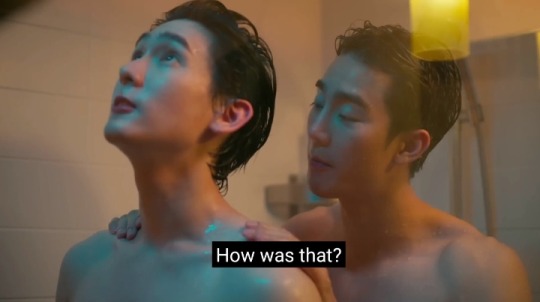



Actually, Mew is completely fine being a virgin. Even so, he's not sex repulsed so he's fine with the idea of having sex. Although he doesn't have a terrible time doing it, he certainly doesn't enjoy it. And, like many asexual people, he feels pressured to have sex. However, it's important to note that Mew didn't have sex against his will. In fact, like many asexual people who decide to have sex for different reasons, Mew had sex with Top because he considered it important when it came to forming an intimate relationship.
Based on all this information we can say that, although someone's sexual orientation is something very particular that everyone experiences and defines internally (therefore it's difficult to know with certainty someone's sexual orientation), we can say that Mew is a homo-romantic asexual person. This means that Mew doesn't feel sexual attraction but does feel romantic attraction to people of the same gender. In turn, his attitude towards sex is neutral (he neither takes a sex-favorable stance nor rejects the idea of having sex).
Regarding your question about control or sex as something inherent in relationships, I don't think either of these two desires is unhealthy. Actually, we all want to have some degree of control in our lives, otherwise we would live in a constant state of anxiety and panic. Control is unhealthy when it becomes a necessity and an obsession. Control also becomes unhealthy when someone tries to maintain control through questionable attitudes that affect others negatively. I also don't think the idea of not wanting to have sex is unhealthy. Sex isn't a prerequisite for romantic relationships (in fact, there are countless healthy romantic relationships that don't include sex), our degree of sexual attraction doesn't define us. In terms of sexual health, a healthy and positive relationship with one's sexuality involves being able to identify one's own limits and respect them. I believe that the thought of “avoiding sex or not wanting to have sex” as unhealthy is related to the pathologization of asexuality. However, it's of utmost importance to remember that asexuality is not a problem to be solved.
I am sorry to dwell on so much Anon but I consider this topic extremely significant and valuable to discuss. Of course, feel free to disagree with me. I hope I answered your questions!
#only friends the series#only friends series#only friends series ep 5#only friends series ep 4#only friends series ep 1#only friends#only friends meta#only friends analysis#ofts#ofts meta#ofts analysis#mew#book#top#force#topmew#forcebook#gmmtv#thai bl#asexuality#lgbtq
49 notes
·
View notes
Text
The Evolving Story of Kim Bennett, Pt. 1: Before Lewisohn
0. Mark Lewisohn’s Star Witness 1. An Introduction and Primer 2. The Evolving Story of Kim Bennett, Pt. 1: Before Lewisohn >You Are Here< 3. The Classic™ Contract Story, and Why Lewisohn Distrusts It 4. The Evolving Story of Kim Bennett, Pt. 2: Tune In 5. Lewisohn’s Other Sources 6. Lewisohn’s Portrayal of Kim Bennett & George Martin
After two posts and as many months of build-up, it’s finally time to look at Kim Bennett’s presence in Beatles history before Mark Lewisohn’s Tune In. As a refresher, Kim Bennett was a music plugger involved in a brief chapter of the Beatles' story, who Lewisohn draws on as a crucial witness to ~debunk the myth~ of how the Beatles’ first landed their recording contract with Parlophone. I’ve previously shown an example of Kim Bennett’s presence in Beatledom here, in an issue of Beatles Book Monthly, just a few pages before the name of a young Mark Lewisohn. I’ve also discussed some of the ways Lewisohn slants a story when he’s set on overturning a classic narrative – you can find that here.
Section 1: Mark Lewisohn on Kim Bennett
Part of the appeal of Mark Lewisohn’s Beatles-signing scoop is Kim Bennett’s oft-stated absence from the Beatles narrative. Lewisohn found and memorialized a man who had been marginalized from the Beatles’ story, a hero integral to their success who was erased from history due to his inconvenience to the legacy of a certain acclaimed producer. Not only has Lewisohn turned a classic narrative upside down, he’s righted the wrong done to Kim Bennett by the powers that be--or so he would have us believe. The importance of Bennett’s testimony and his exclusivity to Tune In is a crucial element of Lewisohn’s myth-building around himself and his work. Let’s take a look at a few examples:
In a 2014 interview with Dierdre Kelly, Lewisohn calls his revised version of the Beatles’ recording contract “probably one of the biggest things in the book.” As for how he came to that version of events, Lewisohn says, “It all fell into place when I met a man called Kim Bennett…without whose incredibly tenacious efforts—and he was never named in any book—we would never have heard of the Beatles. He literally was the story’s hero and he tells us a very different story.” [Emphasis mine]
From Allan Kozinn’s 2013 interview with Lewisohn, we get the following exchange:

Kozinn describes Bennett as “someone who had never been interviewed,” and Lewisohn not only doesn’t correct him, he furthers that idea by saying Bennett “had been trying for years to get people to listen to his story…and nobody wanted to know.”
As a final example, we’ll return to the episode of Nothing Is Real (season 7, ep. 7) that I excerpted in my first post on Bennett.
A partial transcript [emphasis mine]:
“I approached him, and he was so happy that I got in touch with him because he knew the true story of how the Beatles came to be signed to EMI and he knew that it was his efforts that had made the difference, and without him, it wouldn’t have happened. The Beatles possibly may never have happened without Kim Bennett, and he’d been trying to tell people for years, and people didn’t want to know.”
“He was a very frustrated man because no one had ever paid him the attention that he felt was his due.”
“…and if I hadn’t of got to him when we did, we wouldn’t know him, and we would always have that bizarre gap of how they got signed by someone who never met them.”
Again and again, Lewisohn tells us that Kim Bennett had been trying desperately for years to gain recognition for his action, and everyone ignored him--everyone but Mark Lewisohn. This is decidedly untrue. He has been mentioned in multiple Beatles publications by major names in Beatles history, which you can find in Section 3. But first!
Section 2: Biographical & Background Info
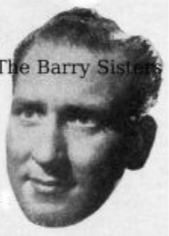
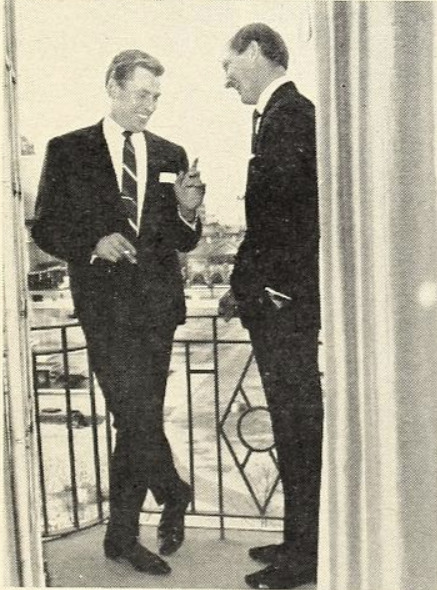
Here he is, the man of the hour, Kim Bennett - and I bet you thought that was the Barry Sisters! On the left, we see Kim Bennett's floating head from his days as a singer, and on the right, we see him fraternizing with Russ Conway circa 1967 - Bennett is in profile on the right. I've dug up some biographical information on the enigmatic Kim Bennett, and I wanted to share it here along with a little context about music publishing to make the accounts shared in the next section make mroe sense. If you're confident in your early-1960s music industry knowledge and know who Kim Bennett and Sid Colman are, scroll right along to Section 3.
I've cited Lewisohn a few times in this section when other sources weren't available. Every time I cite him, I put a quarter in the "Risky Citations" jar - once I've filled it a few hundred times, I'll take it to CoinStar and use the money to buy a copy of Fifty Years Adrift.
The Parlophone Contract Story is a story with many bit parts, most of whom won't appear until my next post--there will even be a figure! I'll assume you know the Beatles, Brian Epstein, and George Martin, the man who would become the Beatles' main producer. In the parlance of the times, George Martin was the A&R man (artistes and repertoire) of EMI's Parlophone label. As the A&R man at Parlophone, George M. has the head of the label, with duties including scouting artists, matching his stable of artists with songs, and overseeing the recording process.
Alongside record labels like Parlophone, Columbia, and HMV, EMI had other companies under its corporate umbrella. One of these companies was the music publisher, Ardmore & Beechwood (A&B).
Music publishers manage song copyrights; they make money by marketing and disseminating those songs. In the early 20th century, the big moneymaker for music publishers was sheet music sales. By the 1950s and 60s a sea change was in progress as record sales grew and eventually eclipsed the sale of sheet music. Just as the medium through which songs were sold changed, so did the way in which music publishers sold those songs: originally, song pluggers from publishing companies would pitch their songs to orchestras, brass bands, and dance halls, seeking out groups who performed live music, so that their audiences would go out and buy sheet music of the songs they’d heard (Southall & Perry 2006, p.ix-xii). With the rise of records, song pluggers would pitch their songs directly to A&R men; they would visit the A&R men in their office and sing the songs they had on offer, accompanying themselves on the piano while they did (Martin & Hornsby 1979, p.48). They could then market those records to sell their songs. If a song was recorded by multiple artists, as was often the case, the song publisher benefited regardless of which version of a song played. This set their interests slightly apart from record producers, who only benefited if their version of a song sold.
Let's illustrate with a Lennon-McCartney original: the music publisher for Lennon-McCartney's music, Northern Songs, would profit from both the Rolling Stones version of 'I Wanna Be Your Man' and the Beatles version, but the record companies would only benefit from the version they released - the Stones version meant money in Decca's pocket, while the Beatles version benefited EMI.
(I'm sure their are some additional business/contract complexities that come into play, but I believe the general principle is correct)
EMI Music Publishing would one day be a Big Fucking Deal, but when the Beatles joined in 1962, it didn't exist yet. Publishing was a minor interest for the company, and they had only a small publishing presence in the form of A&B, which opened in 1958 (Martland 1997, p.262). A&B was set up to handle the publishing interests of two American companies, Ardmore Music Corp. and Beechwood Music Corp., both of which were owned by Capitol Records (Cash Box 1958 Jul 26, p.34). Capitol Records had been purchased by EMI in 1955 (Southall 2009, p.25), and A&B was set up a few years later to handle their catalogue in the U.K., while also providing and option to publish through EMI for any interested songwriters. This was done at the behest of EMI Chairman Sir Joseph Lockwood (Southall 2006, p.9-10).
From its genesis, veteran music publisher Sid Colman (1905-65) served as general manager of Ardmore & Beechwood (Cash Box 1958 Jul 26, p.34). He would serve in this role until his untimely death in April 1965 (Cash Box 1965 Apr 24, p.47). You will encounter multiple spellings of his name, but Lewisohn assures us that Sid Colman (rather than Syd Coleman) is correct (2013, p.856). Kim Bennett served as his assistant and music plugger.
Born Thomas Whippey (1931-2004) (Lewisohn 2013), he became a Decca recording artist in 1954 under the name Kim Bennett. He recorded six singles, none of which charted. I haven’t found any of his work online, but for an idea of the type of music he released, here are other versions of two songs he put out: ‘Softly, Softly’ by Ruby Murray and ‘The Kentuckian Song’ by Eddy Arnold. He maintained a day job as an office worker until 1955, then briefly worked as a musician full time. He worked a season at Butlin’s (not the same location as Ringo), played some clubs, and toured with the Ambrose orchestra, but his career as a singer had petered out by late 1956. As Don Wicks puts it “[h]e was a victim of the growing rock and roll industry no longer interested in a soft pleasant vocal style.” (Wicks 1996 pt.1)
He resumed work at a toy warehouse, (Wicks 1996 pt.1) but later took a job in music publishing with B. Feldman & Co. Ltd. (Cash Box 1967 Jul 22 p.65). He began work with Ardmore & Beechwood no sooner than August 1958. He was still with Ardmore & Beechwood as of June 1965 (Cash Box 1965 Jun 5 p.55). By July 1967, he had moved to South Africa, where he ran a newly launched publishing company, Francis Day (S.A.) (Pty), which was established to manage copyrights of B. Feldman & Co. Ltd., Francis Day & Hunter, and Robbins (Cash Box 1967 Jul 22 p.65).
According to Lewisohn, Bennett spent his later years in Shropshire in “quite humble circumstances (Nothing Is Real, Season 7 Ep. 7, 29:30). He was interviewed by Lewisohn on July 27-28, 2003 (Lewisohn 2013 p.869). He died in 2004.
While biographical information on Bennett between 1967 and 2003 is slim (perhaps nonexistent), his role in the Beatles story received several mentions in print in those intervening decades.
Section 3: Kim Bennett in Beatles History
As I highlighted in my first post in this series, Kim Bennett was quoted in Beatles Book Monthly Issue 70, but that isn't his earliest appearance in the Beatles lore - he first appears in an earlier issue of BBM, issue 13, published in Augst 1964, p.22-3. He's mentioned by BBC DJ Ted King in relation to his work plugging 'Love Me Do'.
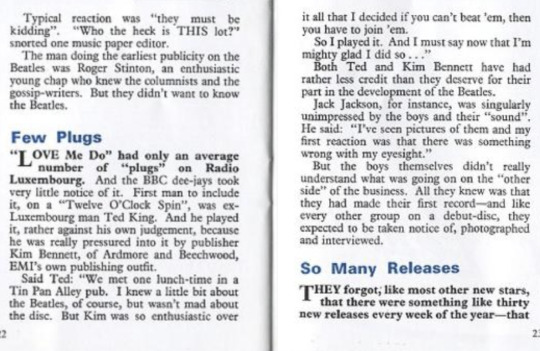
To summarize: Kim Bennett went to lunch with Ted King and pitched “Love Me Do” to him. King wasn’t fond of the record, but Bennett’s enthusiasm convinced King to play it on “Twelve O’Clock Spin.”
Our next Bennett sighting (and the first to use Bennett as a source) is the aforementioned BBM Issue 70, p.8, published May 1969.

This is part of a piece titled “When did you Switch On?” whose author is unattributed. Whoever they are spoke to Kim Bennett directly. Here’s what we can gather from this piece:
Kim Bennett was Sid Colman’s assistant
Colman “had quite a job to persuade George Martin to see the Beatles”
Bennett, presumably, was in the room when Colman “first heard the Beatles’ tapes”, since Bennett is able to relate what Sid Colman said on the matter
Colman decided to call Martin because he did not have a similar-sounding pop group, while the other EMI A&R men did
Bennett next crops up in several of Bill Harry's books, starting in 1982. Bill Harry is the founder of Mersey Beat and was an art school chum of John and Stu's; he's written a number of reference books about the Beatles, including The Beatles Encyclopedia, The John Lennon Encyclopedia, and The Book of Beatle Lists, among many others. Four of his books mention Bennett. The information in these books seems to be pulled from the two BBM articles highlighted above - with the possible exception of the last one. The books where Bennett is mentioned include:
The Beatles Who’s Who (1982): An encyclopedia of Beatle people. Bennett does not get his own entry, but he is mentioned in the entry on Sid Colman (p.84). Bennett is said to be Colman’s assistant, and his involvement in “Love Me Do” promotions is noted without detail.
The Ultimate Beatles Encyclopedia (1992): Bennett now gets his own entry (p.84-5). Again, this appears to draw from the Beatles Book articles. More detail is included here than in The Beatles Who’s Who. Bennett is mentioned again in Sid Colman’s entry (p.168). There’s a reference to Colman and Bennett liking the demos for “Love of the Loved” and “Hello Little Girl”, which is not mentioned in BBM above. However, these songs were referenced in relation to Sid Colman in The Beatles Who’s Who, so I think Bennett is just lumped in with Colman here.
Also in the Colman entry, Harry points out two conflicting accounts of the promotion of “Love Me Do.” George Martin wrote in his memoir that Ardmore & Beechwood did “virtually nothing” to promote the song, but Ted King, in BBM Issue 13, said it was Kim Bennett who got him to play the song on “Twelve O’Clock Spin.” This apparent contradiction will be discussed in detail when we deal with Tune In’s version of events, but for now, I’ll say this: it can be true that Kim Bennett did his best to promote 'Love Me Do' and acheived limited success while still falling short of the expectations of George Martin (and, crucially, Brian Epstein).
The Encyclopedia of Beatles People (1997): Bennett has a brief entry (p.45) and is mentioned in Sid Colman’s entry (p.92-93.) The Sid Colman entry includes this quote from Sir Joseph Lockwood about the Beatles’ publishing rights “I don’t blame Sid Coleman [sic], because he published the first two songs without a contract. He wasn’t getting any support from either the record producers or the solicitors.” This quote appears in Ray Coleman’s The Man Who Made The Beatles (1989), seemingly from an interview conducted by Coleman while researching that book.
The Ultimate Beatles Encyclopedia (Revised & Updated, 2001): The entry for Kim Bennett includes the entirety of the entry in the 1992 version with an additional two paragraphs (p.135-6). These paragraphs are emotionally charged and add information not available in the two articles from BBM. After detailing Bennett's involvement in 'Love Me Do' promo, Bill Harry writes,
“It’s ironic that the two people who were so enthusiastic about the Beatles and helped to get them with EMI in the first place were to have George Martin shut the door in their face by suggesting to Brian Epstein that he see Dick James about being their publisher. For one thing, it was Coleman [sic] who, after talking to Brian realized that the only A&R man at EMI who hadn’t rejected the Beatles was George Martin. Apparently, Coleman had a hard job persuading Martin to see Epstein. Even then, Martin wasn’t initially impressed by their sound. He only agreed to a test session at EMI’s No. 3 studio four weeks later, then another three months elapsed before the release of their first single. EMI and Martin weren’t even confident enough to give the Beatles a plug rating. Artists such as Cliff Richard received an ‘A’ plug on EMI’s Radio Luxembourg shows. The lowest was ‘B2’. The Beatles weren’t even given this low plug, EMI gave ‘Love Me Do’ a nil rating. “So Bennett had a hard job pushing the record without EMI using their clout. As a result, Epstein refused Ardmore & Beechwood the future Beatles publishing. Had he done so, the Beatles might have retained the rights to their own songs, and Coleman might have received some acknowledgment for having placed the Beatles into his hands in the first place.”
It’s hard to say whether or not additional information from Kim Bennett made it into this article. Much of this could be pulled from other sources and presented through a negative lens stemming from Dick James’ involvement in the Northern Songs debacle. There are, however, two elements here that are consistent with Bennett’s later accounts that might suggest that he spoke with Bill Harry: (1) the phrasing that George Martin “shut the door” in the face of A&B, rather than Brian Epstein actively seeking out a different publisher and going to George for advice, and (2) the blame placed on George Martin for the Beatles low plug rating. Both new elements, and both inconsistent with certain other versions of events.
In Philip Norman's revised Shout! (2003), there is unambiguous evidence of Kim Bennett's participation.
In the original 1981 release, Sid Colman and A&B are mentioned, but not Bennett; in the revised edition, not only is Kim Bennett present, but the information surrounding him is clearly more than the familiar, regurgitated tale found in Beatles Book Monthly.
Norman doesn’t give citations, so I can’t say conclusively how he got this new information. There may be an interview with Kim Bennett published somewhere that I haven’t come across, though I’m inclined to believe either Norman or one of his research assistants spoke to Kim Bennett directly. The phrase “According to Bennett” appears a few times in Shout! (2003), which reads as if the information is coming directly from the horse’s mouth, so to speak.
Since the revised edition was published in the same year as Lewisohn’s interview with Kim Bennett, I considered that Lewisohn might have shared his information with Norman, and Norman may have rushed an edit. I looked for the exact publication date for the revised edition of Shout!—it was weirdly hard to find—and that put to bed any ideas of Norman cribbing off of Lewisohn’s notes: Pan Macmillan Australia gives the release date as January 9, 2003, several months before Lewisohn interviewed Bennett.
The Contract Story, as presented in the revised Shout! starts in the usual way: Brian gets an acetate made from the Beatles’ demo tape, the technician likes it and puts Brian in touch with Sid Colman, who works for A&B upstairs. Colman is interested in publishing the original Lennon-McCartney numbers. Then Kim Bennett enters the picture (Norman 2003, p.164-5):


Bennett likes the disc, too, and suggests they record the Beatles independently in the for-hire studio below their Oxford Street office. Colman takes Bennett’s idea to Len Wood, managing director at EMI, but it goes against protocol, and Wood won’t allow it. Only then does Colman put Brian in touch with George Martin. Colman and Brian have a “gentlemen’s agreement” that A&B will get the Lennon-McCartney publishing rights if they get a contract with George M.
It’s a short passage, but there are already a few problems here. First, the timeline doesn’t make sense. Most early accounts have Brian’s meeting with George M. occurring the day after Sid Colman hears the tapes (see A Cellarful of Noise, The Beatles (1968), and All You Need Is Ears). The largest gap is given by Lewisohn’s Chronicle (p.53-55), in which Epstein is said to have met Colman “around February 8” (a Thursday), with the Epstein-Martin meeting occurring on Tuesday, February 13. The Epstein-Martin meeting date seems to be pulled from George Martin’s date book (he has a meeting with a “Bernard Epstein” on that date), but I’m unsure what brought Lewisohn to the February 8 conclusion. Based on other information in the Chronicle, my best guess is either a meeting between Colman and Martin on February 9th, or a letter sent to Decca by Epstein on February 10th stating he had secured a recording contract. Whether or not he had met with Colman, Epstein certainly hadn’t secured a recording contract on that date – it was purely bluster, a kiss-off to Decca.
Regardless, even if Epstein met Colman on February 8th rather than February 12th, that’s a narrow window of time for Bennett’s story to occur. Rather than trying to place the group with an A&R man at EMI, Colman does nothing until his assistant suggests they record the Beatles themselves. This is unorthodox. A large part of the job of music publishers, as I’ve said above, is to pitch songs to A&R men to get them recorded. In this case, they’d be pitching a group along with the songs, but it seems strange that they wouldn’t try to work their contacts at all before making the jump to DIY. Still, let’s assume that happens. Colman takes the idea to Len Wood. Len Wood’s office at the time was probably at EMI House in Manchester Square, which isn’t far from A&B’s Oxford Street location, so assuming Len Wood had an open schedule, and Colman felt a high enough degree of urgency to immediately take Bennett’s idea to the managing director, I suppose it’s possible that Colman took Bennett’s idea to Wood, was immediately shut down, and then called Epstein back in to set up a meeting with George Martin if we assume Epstein’s first meeting with Colman happened on the 8th rather than the 11th. Still, it seems odd to me that these events wouldn’t turn up in Epstein’s account – getting shut down by the managing director of EMI Records is sort of a big deal, and would add to the drama of the everyone-rejected-them-but-George-Martin-story.
The other big issue here is that this version of events contradicts Bennett’s account from 1969. Rather than simply overhearing Colman’s conversation with Epstein and subsequent persuasion of George Martin, Bennett now has a more active, central role. He’s not driving the story, but he now gives a version of events in which he’s one of the Beatles’ earliest champions. I don’t think it’s unfair to consider that Bennett’s increased involvement in the story might indicate an interest in being more than a footnote in Beatles’ history.
Bennett is mentioned again during the promotions of ‘Love Me Do’ (p.182-3):


Bennett secures some airtime on Two-Way Family Favourites by “repeatedly nagging a radio producer friend.” This is not the same radio show mentioned in Beatles Book Monthly Issue 13 (above), but it’s in keeping with Bennett’s role as a plugger—and that’s where Bennett’s involvement ends in Shout! (2003). There’s one more tantalizing mention of Brian’s “gentlemen’s agreement” with Colman, which he breaks due to his dissatisfaction with A&B, turning to George Martin for publishing advice.
There you have it: Kim Bennett’s evolving story pre-Tune In. It starts as a bit of extra detail that fits inside the greater framework of the Beatles’ Contract Saga, and, after thirty years, morphs into something that contradicts Bennett’s earlier version and the many other accounts of the same events. Things will get even stickier once we get to Tune In. But first...
Section 4: Why Does It Matter?
I can think of three explanations for why Lewisohn pitched Bennett as an unheard witness when he had, in fact, gone on the record before, and none of these explanations helps the credibility of the story.
Explanation 1: Neither Lewisohn nor Bennett knew about Bennett’s previous statements on the matter. This would be extremely damning for Bennett’s reliability, as it would mean he had forgotten both his 1960s statement to Beatles Book Monthly (plausible) as well as the interview that led to the information included in Shout! (concerning). This scenario also requires Lewisohn to be unaware of the above Bennett appearances, which doesn’t reflect well on his abilities as a researcher. If you find someone who you think has never been on record, you might want to at least look him up in the glossary of books by major Beatle authors.
Explanation 2: Bennett knew; Lewisohn didn’t. Perhaps Kim Bennett either neglected to inform Lewisohn of his past interviews, or outright lied to him on the matter. Lewisohn says that Bennett is “known for a dogged persistency” (Lewisohn 2013, p.571), has said that Bennett “just picks something up and he will not let it go,” (Let It Roll 2020, ~25:50), that he is “very insistent about things” and by the time Lewisohn interviewed him, “was a very frustrated man because no one had ever paid him the attention that he felt was his due.” (Nothing Is Real S7Ep7) Could this tenacity and feeling of entitlement to a part of the Beatles’ legacy have led Bennett to present himself as a bigger scoop than he really was? Might he have sold Lewisohn a tale of exclusivity and, perhaps, a version of the Contract Story more salacious and headline-grabbing than the truth?
Again, this explanation also hinges on the idea that Lewisohn was in the dark about Bennett’s prior interview(s), which is a huge oversight, but not as damning as explanation 3.
Explanation 3: Lewisohn knew and lied. Whether Bennett told Lewisohn outright that he had been interviewed in the past or if Lewisohn came upon that information in his research, Lewisohn chose to portray his interview with Bennett as exclusive. Perhaps this was purely to make his “scoop” seem juicier. Perhaps he was reluctant to give Philip Norman credit for finding Bennett first – there seems to be no love lost between Lewisohn and his former employer. Or perhaps Lewisohn knew that Bennett’s prior accounts made the story told in Tune In less credible. The early anecdote related in BBM already conflicted with the revised version in Shout! – if Bennett’s account, as related in Tune In, presented further inconsistencies, it would undermine Lewisohn’s major finding.
I’ll close with a segment from one of the better Lewisohn interviews I’ve heard. It’s from Ken Michaels’ radio show ‘Every Little Thing’, conducted in ~2013, and it’s one of the rare instances where an interviewer gives Lewisohn any pushback or asks follow-up questions regarding some of his more explosive claims. It’s an uncomfortable listen – Ken Michaels even appeared in the comments of this YouTube channel to counter claims that he has beef with Lewisohn– but satisfying to hear some meaningful questions when so many people are content to simply deify Lewisohn. Here's the relevant exchange:
youtube
KM: Aren’t there also problems with certain people that you’ve interviewed that have played some part in Beatle history that want to really elevate their status?
ML: Oh yeah, oh yeah, and it’s up to authors to ensure that they don’t get what they want. And there are unfortunately too many authors who just very happily take the stuff they’re given without challenging it. You’ve got to challenge all these things. And unless something completely fits into the framework of the story, you can’t use it.
Next time, on Days of Our Lies: the Classic Version of the Contract Story, and why Mark Lewisohn is so intent on debunking it. After that, we’ll finally look at the Contract Story as portrayed in Tune In.
Sources:
Cockcroft S, Carty J. 2023 Feb 14 [conducted 2023 Jan]. Nothing Is Real – Season 7 Episode 7 – Mark Lewisohn Returns [podcast, season 7, episode 7]. Nothing Is Real. 1:17:15. Available from: https://open.spotify.com/episode/5mtbNIreAY0Car6VASuZGV?si=b1e322e001a347e3
Coleman R. 1989. The Man Who Made the Beatles: An Intimate Biography of Brian Epstein. New York (NY): McGraw-Hill Publishing Company. 400p. Accessed online 2024 Mar 19. Available from: https://archive.org/details/manwhomadebeatle00cole/mode/2up
Kelly D. 2014 Jul 30. Setting the Record Straight: Interview with Beatles biographer Mark Lewisohn. Critics at Large. Accessed 2024 Mar 4. Available online: https://www.criticsatlarge.ca/2014/07/setting-record-straight-interview-with.html
Kozinn A. 2013 Dec 27. Tune In, and Turn On the Reading Light. ArtsBeat: New York Times Blog [accessed 2024 Feb 6]. Available from: https://archive.nytimes.com/artsbeat.blogs.nytimes.com/2013/12/27/tune-in-and-turn-on-the-reading-light/?_r=0
Lewisohn M. 1992. The Complete Beatles Chronicle. New York(NY): Barnes & Noble Books. 365p. Accessed online 2024 Mar 14. Available from: https://archive.org/details/completebeatlesc0000lewi/mode/2up
Lewisohn M. 2013. 1st U.S. Edition. The Beatles: All These Years Vol. 1: Tune In. New York (NY): Crown Archetype. 932p.
Lichtman I [editor]. 1965 Apr 24. Great Britain. Cash Box XXVI(40); International Section p.45. Accessed online 2024 Mar 18. Available from: https://archive.org/details/cashbox26unse_31/page/44/mode/2up
Lichtman I [editor]. 1965 Jun 5. Great Britain. Cash Box Vol.XXVI(46); International Section p.55. Accessed online 2024 Mar 13. Available from: https://archive.org/details/cashbox26unse_37/mode/2up
Lichtman I [editor]. 1965 Jul 24. Great Britain. Cash Box Vol. XXVI(53); International Section p.53. Accessed online 2024 Mar 13. Available from: https://archive.org/details/cashbox27unse/mode/2up
Lichtman I [editor]. 1967 Jul 22. Overlooking South Africa. Cash Box Vol.XXVIII(52); International Section p.65. Accessed online 2024 Mar 13. Available from: https://archive.org/details/cashbox28unse_50/mode/2up
Martin G, Hornsby J. 1979. All You Need is Ears. New York (NY): St. Martin’s Griffin. 293p.
Martland P. 1997. Since Records Began: EMI: The first 100 years. London: B.T. Batsford Ltd. 359p. Accessed online 2024 Mar 17. Available from: https://archive.org/details/sincerecordsbega0000mart/mode/2up
Michaels K. 2013. Mark Lewisohn interview [radio broadcast episode]. The Beatles – Every Little Thing. Originally aired on XM Radio. 1:53:18. Available from: https://www.youtube.com/watch?v=CjAUtngSoKc
Parnes S [editor]. 1958 Jul 26. Ardmore & Beechwood Open London Office. Cash Box Vol. XIX(45); p.34. Accessed online 2024 Mar 18. Available from: https://archive.org/details/cashbox19unse_43/page/34/mode/2up
Southall B, Perry R. 2006. Northern Songs: The True Story of The Beatles Song Publishing Empire. London: Omnibus Press. 218p. Accessed online 2024 Mar 13. Available from: https://archive.org/details/northernsongstru0000sout/mode/2up
*Wicks D. 1998. Updated 2012. The Ballad Years: From the Bombs to the Beatles: a Directory and Discography of British Popular Music-makers from 1945-1960. Accessed online 2024 Mar. Available from: https://archive.org/details/theballadyears/Book%20Contents/
Wilcox N. 2020 Apr 27. How The Beatles Got Signed [podcast, season 7]. Let It Roll. 57:21. Available from: https://dcs.megaphone.fm/PAN2878353172.mp3?key=5204cb23c38410bae94e208461239e2d&request_event_id=e800ecea-9c5e-40f2-90e3-dad820306501
Images from The Ballad Years and Cash Box 1967 Jul 22
*The Ballad Years by Don Wicks was originally published circa 1998 (by a company called In Tune International, of all things!) There is some great contextual info included at the Internet Archive link; to condense it here, after the original print run of the book, Don Wick continued to update the book, primarily to reflect the death of artists. He distributed these via Microsoft Word Document, and the 2012 version of these documents was uploaded to the Internet Archive. I believe that is the reason for “The Barry Sisters” being plastered across Kim Bennett’s face – the pages including artists’ pictures have very wonky formatting.
#mark lewisohn#the beatles#tune in#kim bennett#sid colman#ardmore & beechwood#it's TOO LONG but what can ya do#bless you if you read this whole thing
36 notes
·
View notes